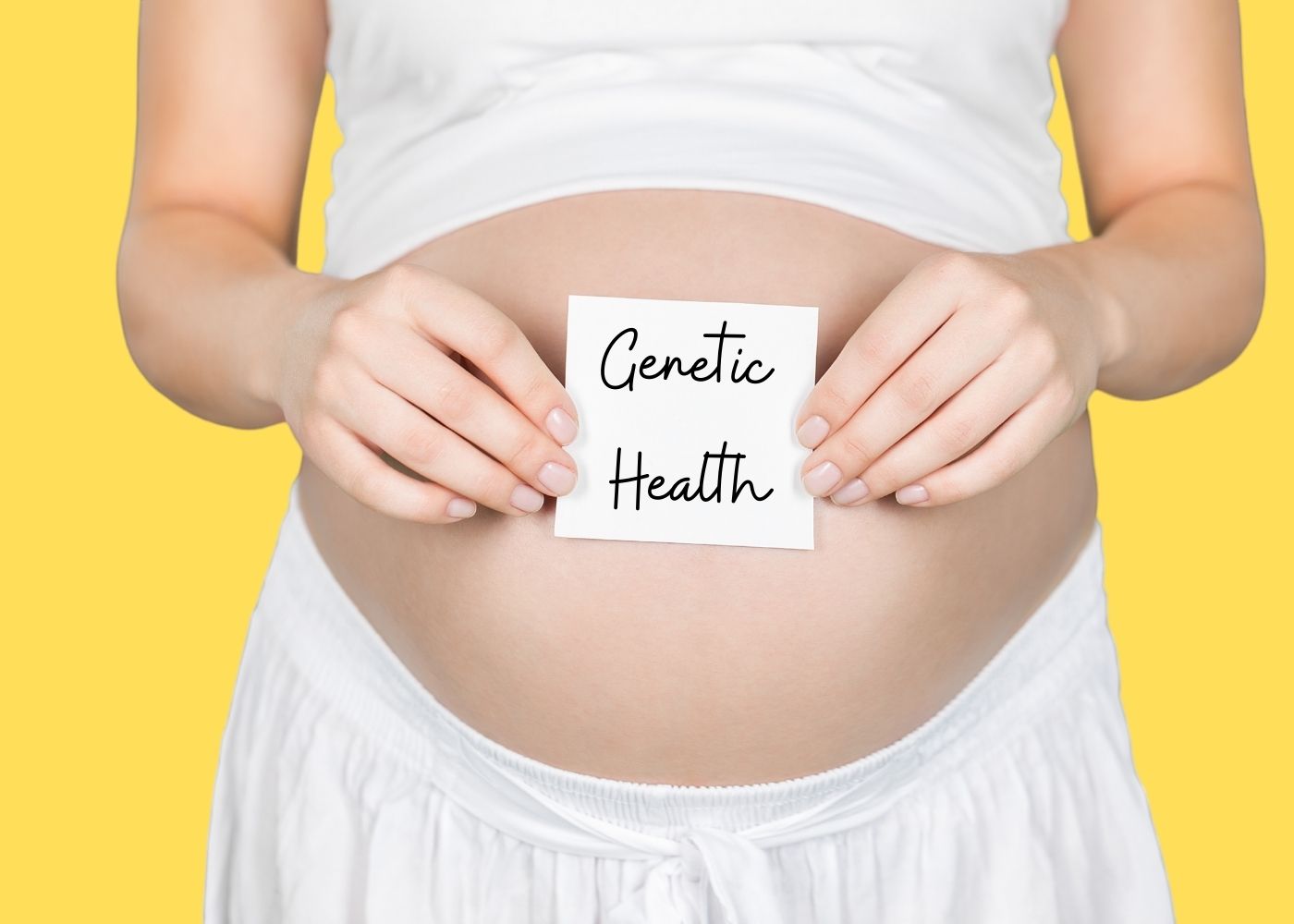As a Pregnancy Naturopath, I know that the big wide world of genetic health is forever changing and evidence suggesting that our environment triggers our genes is becoming more and more well known. It’s called ‘epigenetics’ and it is the direct relation of non-genetic influences on gene expression.
In other words what we eat, feel and do, effects whether certain genes are expressed as disease or not. Considering a load of gene variations have been linked with a variety of health issues, the fact that we have some sort of control is all the more exciting, making prevention a reality.
Genes influence our health in a number of ways, including how well we detoxify, how we process nutrients, and the risk, protection and inheritance of disease. The good news is that diet and lifestyle choices can help to optimise our genetic health.
So, here are my top tips on improving genetic health:
1. Eat More…
- Vegetables such as leafy greens, broccoli, Brussels sprouts, tomato, beetroot, red capsicum, sweet potato, pumpkin and zucchini.
- Fruit like berries, plums, apricots, papaya, mango, apples and pears.
- Herbs and spices: turmeric, ginger, garlic, paprika, cardamom, coriander, mint, basil.
- Protein –adequate good quality protein and reduced sugar intake encourages liver clearance of toxins.
- Essential fats like avocado, coconut, olive and seafood.
2. Choose Organic Where Possible
- This minimises pesticide and herbicide exposure.
- Chemicals in non-organic products interfere with methylation. Poor methylation modifies the function of DNA and adversely affects gene expression.
- If using non-organic fruit and vegetables, make sure you wash it thoroughly.
3. Reduce Your Intake of Processed Foods
- These foods are calorie rich and nutrient poor, causing inflammation and interfering with gene health as they:
– increase blood sugar and insulin resistance.
– increase the body’s demand for nutrients and antioxidants.
– do not contain beneficial plant polyphenols.
- Minimise intake of nitrates, sulphites and charred foods as contained in cured meats and heavily barbecued meats.
4. Avoid Trans-fats and High-Fructose Corn Syrup
- Animal studies have found that the consumption of trans-fats and corn syrup effected genes involved with; fat and glucose metabolism, liver damage and regeneration, liver scarring.
- All of which can lead to the development of non-alcoholic fatty liver disease and liver damage.
5. Go Meat Free Once a Week
The majority of Australians consume too much meat. Try and restore the balance by incorporating vegetarian sources of protein such as nuts, seeds, legumes, pulses, fermented whole bean soy such as miso and tempeh into the weekly meal plan.
6. Avoid Canned Foods -Bisphenol–A (BPA)
- BPA is a toxic chemical that can leach into foods from the lacquer lining of cans and from other food containers and bottles made from certain plastics. In 2010, a CHOICE test found BPA in a wide range of canned foods – including baby foods – at levels that many experts believe to be harmful.
- Research suggests that BPA disrupts the endocrine system via our genes, altering hormone production and adversely affecting fertility.
- Use fresh food where possible, or food stored in glass jars, BPA free cans are also available.
7. Avoid or Reduce Gluten
Gluten contains proline which is difficult to digest completely. The result is increased production of free radicals, inflammation and immune system reactions. Opt for naturally gluten-free grains such as rice or quinoa.
8. Dairy (The Good and Bad)
- Some research suggests that people with MTHFR polymorphisms should avoid dairy, as it interferes with folate transport into cells. This is particularly important when implementing pregnancy naturopathy.
- People with asthma, sinus issues, hay fever and eczema often report that dairy aggravates their symptoms and increases mucous production.
- Research has shown that whey protein (dairy) may assist in controlling obesity and managing weight gain.
9. Drink Clean
- Filtered water is essential – absolute 1 micron filtration removes harmful particles leaving behind good minerals.
- Ozonation eliminates bacteria.
- Try well-sourced alkaline or spring water.
- Avoid plastic containers – use glass or stainless steel if you can!
10. Kitchen Detox
- Heat food on stove top rather than microwave to retain nutrients.
- Use non-toxic cookware.
- Store left-overs in glass or BPA free plastic.
- Avoid plastics in the dishwasher as over time the lining can become unstable and leach.
- Use a phosphate-free, non-toxic dishwashing powder or liquid.
Thanks to Eagle Professional Natural Medicine for the information contained in this article.
Learn more about Pregnancy Naturopathy, or book an appointment with me to discuss your individual needs.
The Pregnancy Naturopath is part Brunswick Health, located on Melville Road in Brunswick West.
